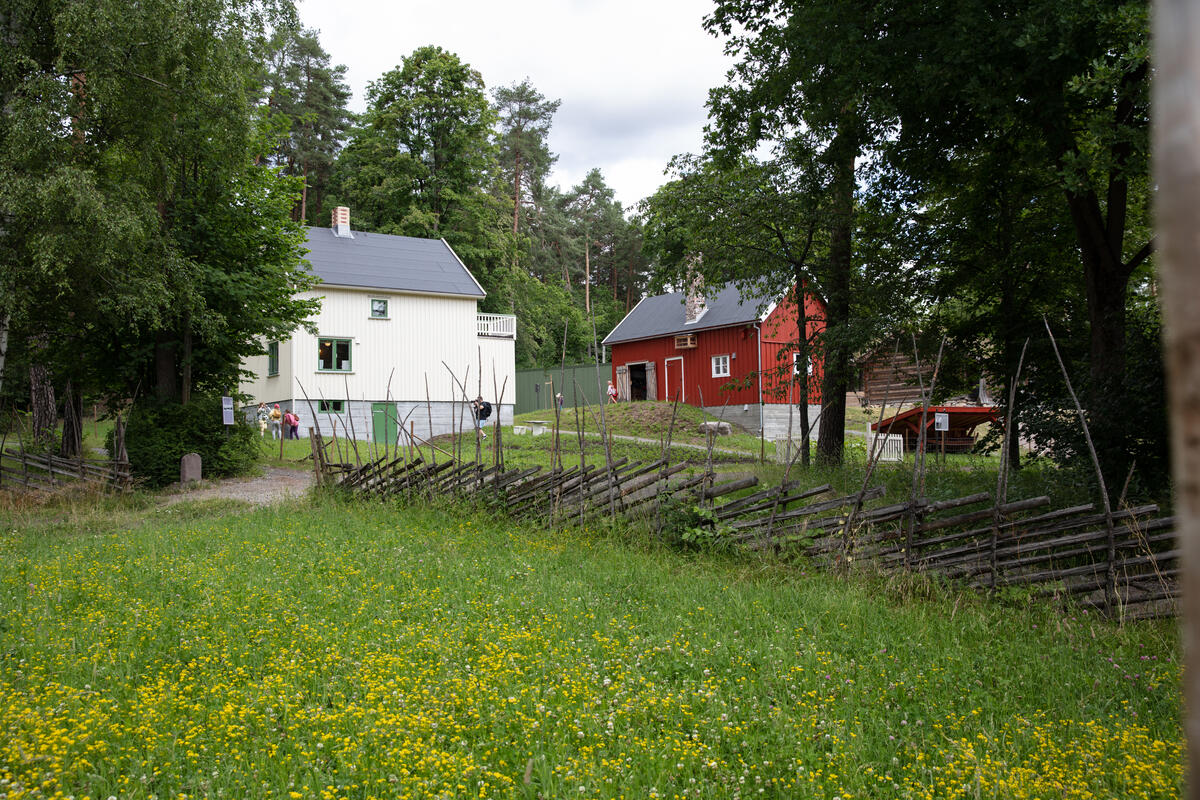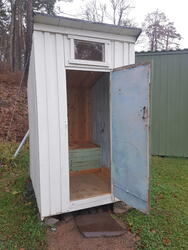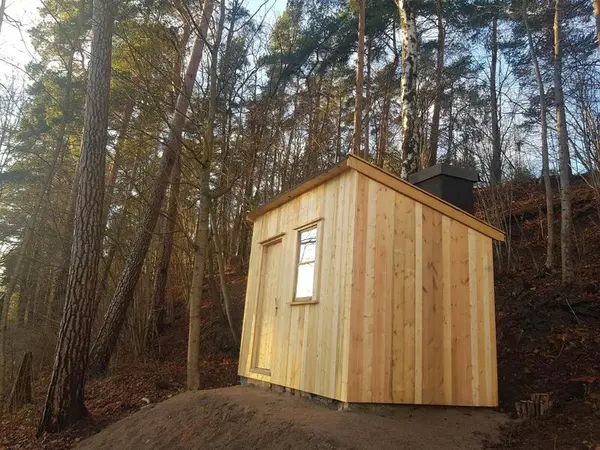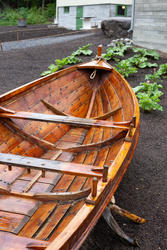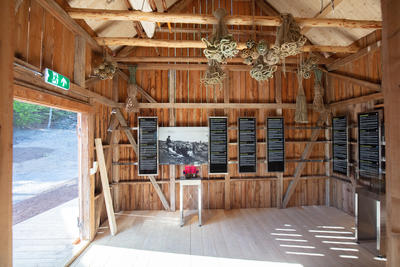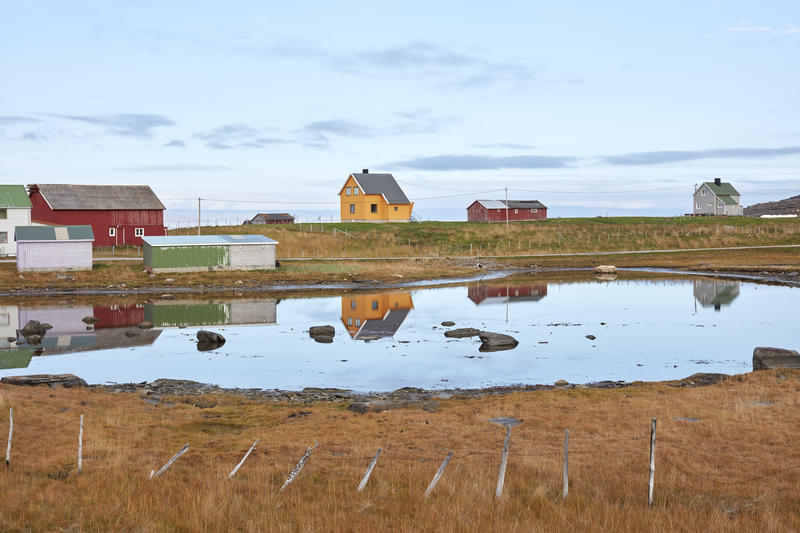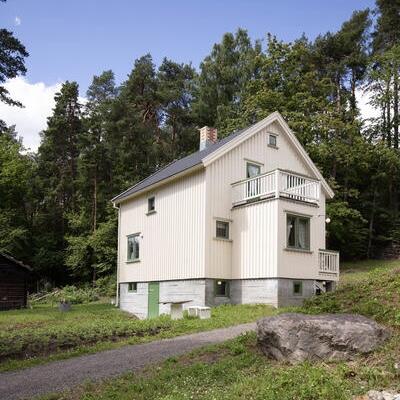
House from Olderfjord (Porsanger, 1951)
The house was located at Olderfjord, on the west side of the Porsanger Fjord and approx. 60 km from the municipal center Lakselv.
The house was built between 1950-51 from drawings by architect Leif Pedersen in Hammerfest.
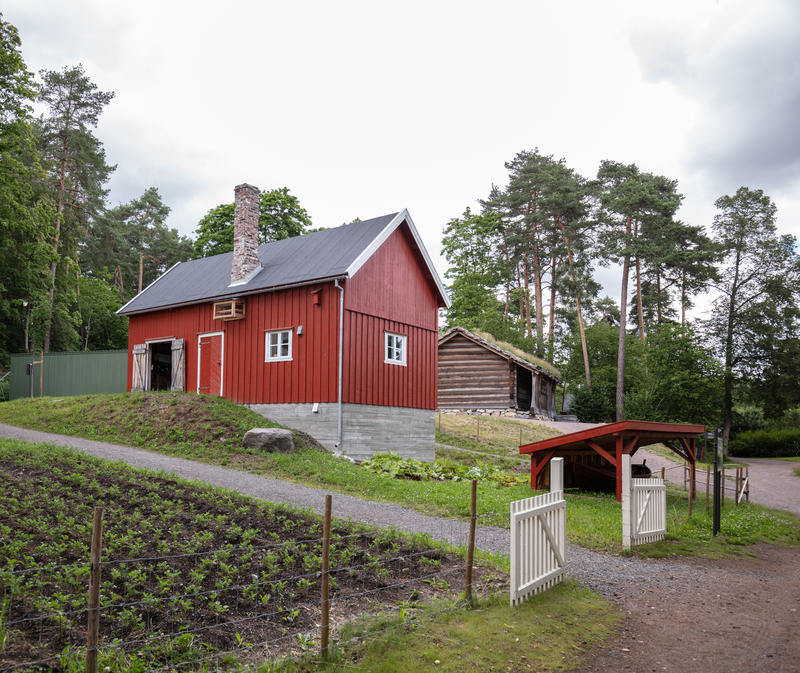
Cowshed from Indre Billefjord (Porsanger, 1940s)
The cowshed was located in Indre Billefjord, on the west side of the Porsanger Fjord and approx. 30 km from the municipal center Lakselv.
- 1/3
Privy from Olderfjord. Made from recycled materials, perhaps from the ”previsorie“ the family lived in before the house was built. Espen Revold / Norsk Folkemuseum - 2/3
The forge from Smørfjord was built at Norsk Folkemuseum in 2020. The model is the forge of Albert Strømstad in Smørfjord. Espen Revold / Norsk Folkemuseum - 3/3
The "Spissbåt“ was built by boat builder Hans Oliver Hansen in Indre Billefjord. Haakon Harriss / Norsk Folkemuseum
Exhibition
-
From Leirpollen in Porsanger, Finnmark 2015. Haakon Michael Harris / Norsk Folkemuseum
Finnmark
Finnmark is the northernmost part of Norway and constitutes one sixth of mainland Norway, with an area of over 48 000 km². Finnmark borders the Arctic Ocean in the north, towards Troms (Kvænangen) in the west, Finland in the south and Russia in the east. The largest cities are Alta and Hammerfest in the west and Vadsø and Kirkenes in the east.
At the end of World War II (1944-1945) the Germans used scorched earth tactics, and destroyed almost all buildings and all boats in Finnmark and Northern Troms. The population was evacuated. In the years following the liberation in 1945, the region was rebuilt and people returned.
The extensive reconstruction of the region lasted until the early 1960s. This is an important, but little known part of Norwegian postwar history. The architecture of the region was completely changed during this period – a direct and concrete expression of the drama and the change the people themselves went through.
